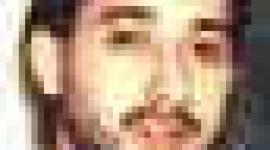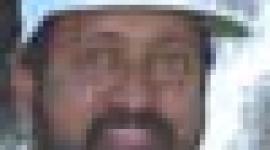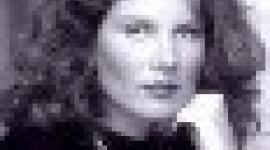Birthquake Online Conference Transcript
Tammy Fowles, the author of BirthQuake: The Journey to Wholeness, and site master at SagePlace, talked about BIRTHQUAKES, where everything in your life is rocked and shifted, where foundations crack, and treasures lie buried beneath the rubble. In the end, those who experience one are, in every case, ultimately transformed.
David Roberts is the HealthyPlace.com moderator.
The people in blue are audience members.
David: Good evening everyone. I'm David Roberts. I'm the moderator for tonight's conference. I want to welcome everyone to HealthyPlace.com. Our topic tonight is "BIRTHQUAKE: Transitioning Through A Crisis in Your Life". Our guest is Tammie Fowles, Ph.D., author of the book "BirthQuake: The Journey to Wholeness". Dr. Fowles' site, SagePlace is here at HealthyPlace.com.
Good evening Dr. Fowles. Welcome to HealthyPlace.com. Thank you for being our guest tonight. What is a BirthQuake?
Dr. Fowles: Hi David. Glad to be here. A Birthquake essentially is a transformational process that gets triggered by a turning point or crisis, what I call a quake. Quakes occur for most of us when we are standing at a crossroad. They can be precipitated by a loss, a major lifestyle change, or even a new awareness.
David: When you say a "turning point" or "crisis," is this something of monumental proportions or simply a significant change in our life?
Dr. Fowles: Generally, they are of monumental proportions. Ultimately, however, a lifestyle change or even a single awareness can prompt one. Typically, they are painful experiences, but the pain holds promise because they trigger a healing process.
David: Can you give us an example of what you are referring to?
Dr. Fowles: Sure. A man who has worked his entire life for a major corporation loses his job, is devastated, depressed, but ultimately discovers that his life felt empty and enters another career that offers greater rewards.
David: On your site, you say one of the goals of writing "BirthQuake: The Journey to Wholeness" is to help people find meaning and purpose in their life. I think, and this is especially true here at HealthyPlace.com where our visitors deal with many types of psychological disorders and ask, "why did this happen to me?" how does one start on the journey to find meaning and purpose in their life?
Dr. Fowles: Well, the discovery of meaning and purpose is a unique journey for each of us. For myself, it was about no longer looking for the meaning of my life, but instead to do what I could to make my life more meaningful. To create meaning.
David: We have a few audience questions, Tammie, then we will continue:
BlackAngel: I have anorexia. The turning point in my life happened prior to this, and going through the process of anorexia is the transition part, the healing. Is that what you are saying?
Dr. Fowles: Yes, I am saying that the recovery process you are undergoing will lead to healing on a number of levels.
Dottie: About two years ago, I began working through child sexual abuse issues and I experienced what I described as an earthquake. The memories came flooding back, and I felt so alone through all of that. Is that a typical reaction or feeling?
Dr. Fowles: Absolutely, Dottie. In fact, I named my book BirthQuake because this process is initially very much like encountering an earthquake. This healing process, this uncovering treasures buried beneath the rubble, this rebuilding, can lead to rebirth. Jacob Needleman wrote, "When you're in the middle of an earthquake you begin to question what is it that I really need? What is my rock?" I can fully appreciate your feeling alone and overwhelmed. You will also discover your rock, your strength.
David: In essence, what you are saying is-- when going through a BirthQuake you are developing a "new you" and hopefully one finds themselves in a more emotionally and spiritually comforting position than even before the crisis happened.
Dr. Fowles: Yes, on some level you are developing a new you David, or rediscovering the real you. You are strengthened through this process. A Birthquake affects the entire person, affects us physically, emotionally, spiritually, and impacts our outer world in most cases.
David: Here are some more audience questions:
Pier: When we feel we can go no further, experience nothing worse, do you feel that part of the process of recovering from this is this earthquake of which you speak?
Dr. Fowles: Yes Pier I do, although we don't need to always get to that place.
David: Are there phases to a BirthQuake -- from the crisis to healing, finding the "new you"? If so, can you identify them for us?
Dr. Fowles: Certainly. The first phase of a Birthquake, I call the "exploration and integration phase." This phase is triggered by the quake or turning point. This phase generally involves a great deal on soul searching, questions, confusion, and uncertainty. It is during this phase that we begin to explore what we want/need/fear, etc. Tom Bender wrote that, "like a garden, our lives need to be weeded to produce a good crop," and that's what we start to do during this first phase. We look at where in our lives we need to weed, and where and what we need to plant and cultivate. Bender also wrote that in order for a person and a society to be healthy, there needs to exist a spiritual core and that the spiritual core involves honoring. An important question that we need to ask during this first phase is, "what do I really honor, and how, if at all, does my life style reflect what I truly honor?"
The next phase is the "movement phase." It is here that we begin to make changes. They are often small at first. For instance, we might change our diet or make an appointment to see a counselor.
The final phase is the "expansion phase." This phase is where our changes and growth not only impact our own lives, but touches other lives as well.
David: Dr. Fowles' website is called SagePlace. When you have some quiet time, I encourage you to sit down at your computer and read through this excellent site. Not only is there a lot of information, but it is presented in a very thoughtful manner. Here is the link to purchase Dr. Fowles' book: "BirthQuake: The Journey to Wholeness".
Here are a couple of audience comments on what's been said so far, then more audience questions:
flitecrew: I think my experience qualifies as a quake. I lost a cousin, three weeks later I lost my brother, seven months later my mother passed away in her sleep, four months later my sister was diagnosed with incurable pancreatic cancer and died one year later. I had given up my job to care for my sister and when it was done, I had no immediate family left or a job. But four years later, I am doing well, although it was a long and difficult journey.
Pier: We have all had our terrible experiences. We have all searched for answers. The answers lie only within ourselves. This is what I understand of healing.
Montana: I experienced several years of severe abreactions, which in reality, helped me get into the healing process and remove the pain and anguish. My question is how do you connect the mind, body and spirit to find balance after the BirthQuake?
Dr. Fowles: By attending to each of these sacred aspects of the self. It takes time, certainly, but they are clearly interconnected. Laurence J. Bennet observed that, "Healing is a process of reorganization and reintegration of things which have come apart." Step-by-step, as you make a conscious effort to integrate mind/body/spirit, this process takes place. There are some wonderful books that you might find helpful, Montana, such as Ken Pelletier's books -- "Mind as Healer, Mind as Slayer" and "Sound Mind, Sound Body." There are several more.
David: Here are two similar questions:
BlackAngel: What if instead of going through the entire process, you fail. Where does that leave you?
Keiki: What if the healing doesn't work, so you rip open wounds (literally) and never feel solace?
Dr. Fowles: Healing is a process. You may think you've failed when you've only stumbled. Ken Nerburn advises that, "You must ask yourself not if you will heal, but how you will heal." You may think you have reached the end, when you are actually simply at another turning point.
tjs53221: I was wondering if there is any way of quickening a new birth or birthquake. I have been divorced for three and a half years and can't seem to get over the pain and get on with my life. What can I do?
Dr. Fowles: I am wondering if you've sought counseling, if you've sought the support of a group. These are two helpful steps.
tjs53221: Yes. I have done both.
Dr. Fowles: Perhaps, although you continue to be in pain, you are continuing to grow. Even your pain can be a pathway to possibility. Are you journaling? Have you looked for the lessons of this painful experience? What are you doing now to provide support and nurturance to yourself?
David: One of the things you talk about in your book is the myth of "happily ever after." We are led to believe that the spouse, the kids, the white picket fence and having money is the ideal. In reality, many people don't reach that point, ever! What does that mean?
Dr. Fowles: Frederick Edwards wrote of living on the "deferred payment plan," that's what we do when we hope that some event will lead to us being happily ever after. The truth is that there is no "happily ever after."
adultchile: How can you attend to these sacred aspects when you are doing all you can to just keep breathing and keep a roof over your head? How can you get your perspective back, when you don't feel safe?
Dr. Fowles: It doesn't come with the right partner, job, etc. That's a very good question, one that speaks to my heart. The priority first is to do what you need to do to feel safe. That comes first.
When you are living with anxiety and fear, it is difficult to have a positive outlook or a healthy perspective, so sometimes you have to "borrow" the perspective of others.
This helps you to keep your expectations of yourself modest, to take one step at a time, and trust to the very best of your ability that you'll make your way out of the darkness. Once you begin to feel safer, and that will require work on your part as well as reaching out, your perspective will shift.
David: I want to mention here that we have a very large journaling community, people who keep online diaries of their experiences. It is not only helpful to the journaler, but also to the visitors who come by and discover they are not alone in their feelings.
Dr. Fowles: I highly recommend journaling as well.
David: Here are a few more audience comments on what's been said so far:
Keiki: People don't ever reach "the white picket fence" because they hurt too much inside themselves.
Joyce1704: The truth is, you are as happy as you allow yourself to be. It comes from within. As I know, if you learn to love all the little pleasures, soon the larger problems melt away. In 1962, I suffered a near fatal auto accident resulting in total amnesia. I had to have the faith to start a whole new life. With faith in GOD and Divine intellegence, I built a new life. It wasn't easy.
Pier: We are not human beings trying to become spiritual, we are spiritual beings trying to become human.
Dr. Fowles: I absolutely agree with you Joyce and Pier.
Reenie274: What about the severe traumas we may have encountered in our lives, things that we have yet to resolve. Does this relate to them as well?
Dr. Fowles: Absolutely. Confronting those, very often leads to a Birthquake.
David: Another audience comment:
tjs53221: I journal sometimes. I guess I don't really nurture myself because I keep dwelling on the pain.
Montana: Healing and Growth takes practice, practice, practice and willingness, willingness, willingness!
Dr. Fowles: Absolutely, Montana. Edwin Louis Cole observed, "You don't drown by falling in the water, you drown by staying there." Dwelling on the pain might still be part of the process for you, but you need to move beyond this dear sister. Have you heard of dialoging as a journaling tool?
David: Can you briefly explain that?
Dr. Fowles: Well there are many forms of dialoging. But one that I often suggest is dialoging with our inner wisdom. Each of us contains an enormous storehouse of wisdom that we need only tap into. When we simply write to ourselves, we can get mired in our pain, anger, confusion. If we write to our inner wisdom and then allow that inner wisdom to answer, then we begin to make progress. There is an amazing amount we can learn from ourselves.
David: One thing I want to ask: Concretely, how do you move from beyond the pain to starting the transformation, to the "journey to wholeness" as you describe it?
Dr. Fowles: I think the first step is to ask yourself, "how do I grow from here?" There is no one specific action that each of us can take that works for all of us. I hate to be in pain. I hate to hurt. But when I'm hurting I've learned to ask myself what lessons live along with this pain. What do I need? What must I do? What must I change? etc. James Hillman once said, "Every major change involves a breakdown." What change is this breakdown calling for?
David: I want to thank Dr. Fowles for being our guest tonight and sharing her knowledge and experience with us. And thanks to everyone in the audience for coming and participating. I hope you found it helpful.
Dr. Fowles: I would like to thank you David for providing us with this opportunity to explore this area together. And thank each of you for being here. I sincerely hope you found this chat helpful. Goodnight.
David: Thanks again and good night everyone.
APA Reference
Staff, H.
(2007, June 5). Birthquake Online Conference Transcript, HealthyPlace. Retrieved
on 2026, January 17 from https://www.healthyplace.com/alternative-mental-health/transcripts/birthquake-online-conference-transcript


